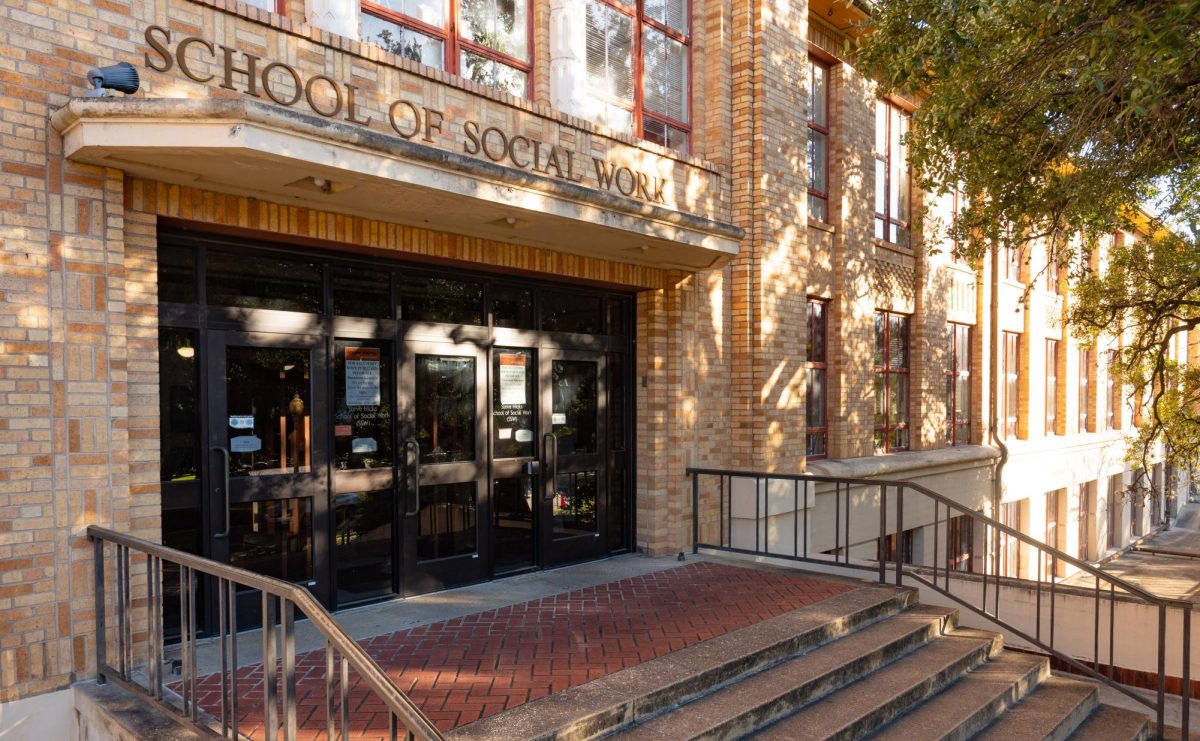After the University dismissed two teaching assistants from their positions in November for sending a Canvas message about the Israel-Hamas war, they spent the next four months defending their case to the University. On March 13, they received an email from University President Jay Hartzell informing them he dismissed their efforts and grievances.
Former School of Social Work TAs Callie Kennedy and Parham Daghighi filed three grievances, or statements of complaint, defending their case to the University. The University dismissed their first two grievances in December. President Hartzell dismissed the third grievance, which said the reassignment violated their academic freedom, three months later.
On Jan. 8, the 20-member University Grievance Committee advised the TAs’ third grievance relating to academic freedom should be presented to the committee. In a Jan. 17 letter, Hartzell announced his suspension of the teaching assistant grievance procedure implemented in 2014 because it failed to “provide for timely resolution for matters grieved,” according to the University Risk and Compliance Services Website. He created a temporary policy on Feb. 9 that required the TAs to deliver a 20-minute speech directly to Hartzell instead of standing before the committee.
Though President Hartzell held the final decision, Vice President and Provost Sharon Wood and a new Faculty Grievance Panel composed of three faculty members advised him. The panel unanimously found that reassignment did not constitute as punishment or violate the TAs’ First Amendment rights.
“When you speak as an employee, as opposed to speaking as a private citizen, your speech falls outside of First Amendment protection,” Hartzell said in the disposition.
Two out of three panel members advised that academic freedom may protect the TAs. However, Hartzell said academic freedom does not protect the TAs’ case because the Canvas message they posted was “overtly political” and went beyond classroom material.
“Dean Cole did the right thing in protecting our classrooms as spaces for the learning we are here to do together,” Hartzell said in an email statement. “In doing so, he promotes academic freedom. Academic freedom provides faculty great power in the classroom. That power goes hand-in-hand with the responsibility to honor its bounds.”
Kennedy, who was the TA for the class for three years, said the hearing showed a clear imbalance of power. The two TAs represented themselves against Hartzell, Wood and each of their attorneys, Kennedy said. The TAs were not allowed to ask questions, unlike Wood’s attorney who did ask questions, Kennedy said.
“It was clear to us that in that meeting before the President, there would be no meaningful deliberation,” Kennedy said. “He would not be swayed by anything we were presenting because they already had an attorney present to make their case against our grievance.”
Hundreds of University faculty and organizations supported the TAs, including the American Civil Liberties Union. In the disposition, Hartzell said the TAs did not provide enough context to the people who supported them, so he disagreed with them using the supporters as evidence for their case. The University did not specify which facts the TAs excluded from the organizations, and Daghighi said he did not know what Hartzell referred to because the TAs made most information publicly available.
“It didn’t feel like we were there for our grievances, descriptions and explanations to be heard, but actually to be disproved by a party that was given just as much time and opportunity, if not more,” Daghighi said.













